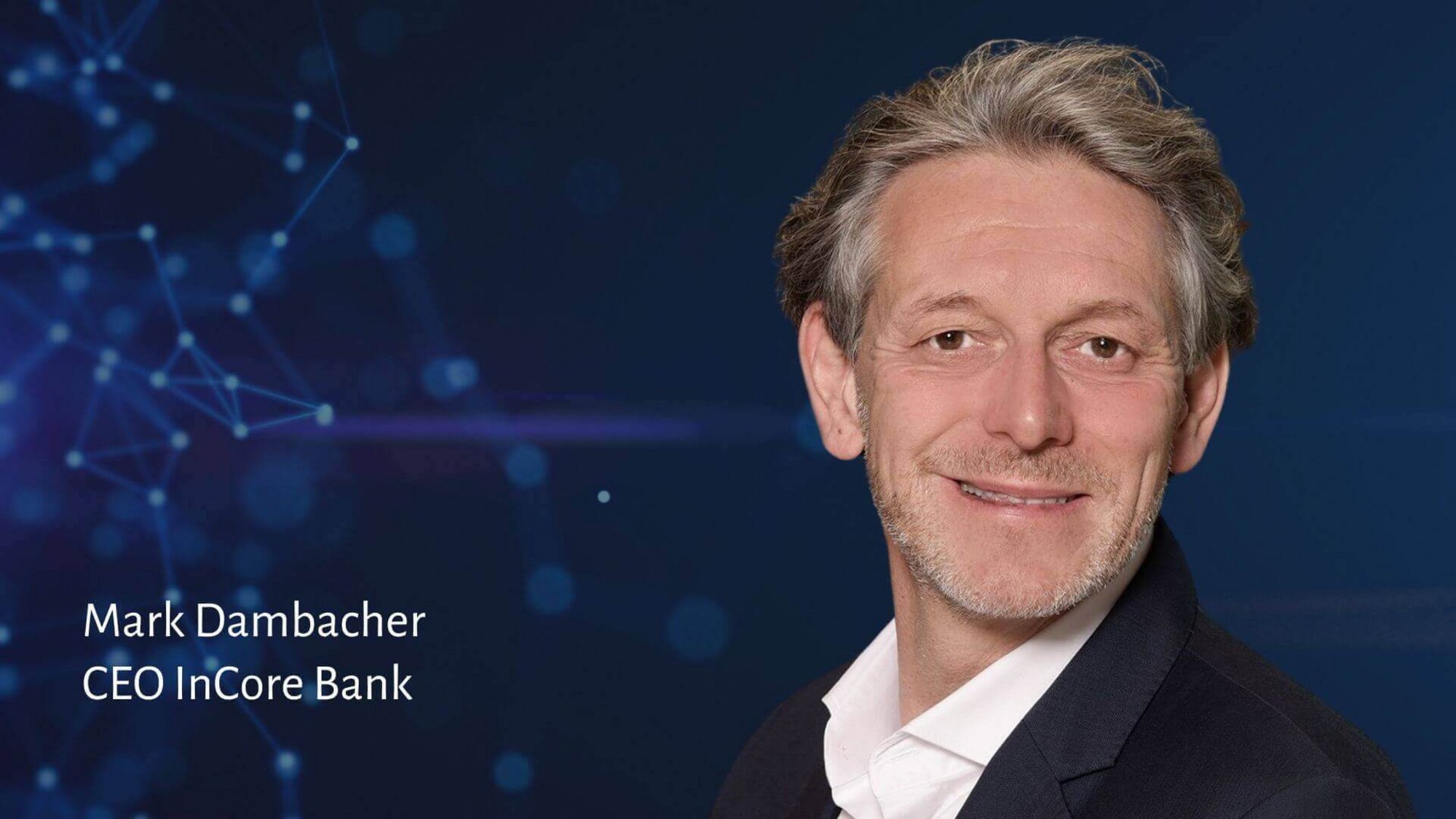Mark Dambacher in an interview with moneycab
View on moneycab (DE) / Finanznachrichten (DE)
How important has digital assets become for InCore Bank?
M. Dambacher: Digital assets have turned many things upside down. For InCore Bank, they represented a quantum leap when, in 2020, we became the first bank to be approved by the Swiss Financial Market Supervisory Authority FINMA for the trading, custody and transfer of digital assets. Originally known as an outsourcing provider, we suddenly received requests from all over the world. Meanwhile, we can look back on many successful implementations, with a growing customer base and a high level of recognition both at home and abroad. But we are not focusing exclusively on this one area. For us, digital assets are an additional revenue pillar to other business areas.
One of the most important reasons to invest in digital assets was the effect of risk diversification, because digital assets were supposed to correlate only slightly with traditional markets. This has not proven to be the case in the current crisis. Could you explain this and what does it mean for the future of the market?
While the crypto universe used to be a kind of «parallel world,» digital assets are now also held by many institutional investors, in an increasingly regulated market. The specific characteristics of different asset classes are dissolving. The collapse at FTX has shaken us all up. However, unlike crypto exchanges, banks are regulated globally and have high capital reserves. In the event of a bank failure, digital assets are segregated from the bankruptcy estate and are safe from any claims in a liquidation. Many customers have only now become aware of these advantages. They are now consolidating their assets and using professional custody services – a positive effect for InCore Bank.
Cryptocurrencies are only one form of digital assets; tokenization also offers a promising future. What is the level of interest in the market?
Tokenization has not yet really caught on in the market. Too much was expected in too short a time. I personally believe in tokenization, but it will take time. In my opinion, the basic idea of securitizing assets via a digital medium will prevail, not only in the context of DeFi and Web3. But before that happens, we will have to think about the appropriate regulations. In any case, the topic remains exciting and we are ready for it!
Has there been a decline in interest in digital asset banking since the market correction began?
Interest has remained constant. We are seeing a growing number of customers and have noticed that many banks are currently addressing the issue in order to position themselves with foresight.
Recently, Kaleido Private Bank announced its collaboration with InCore Bank. How long is the required lead time before a financial institution or fintech company can offer its customers banking services around digital assets via InCore Bank?
There is a difference between setting up a new banking platform for digital assets yourself, with your own counterparties etc., or benefiting from an existing solution like the one we offer. Technical setup is relatively fast:One opens an account, sets up an interface, etc. The bottleneck is in a different area: you have to have a country-compliant order from the relevant supervisory authority. That takes time. As soon as you have the order, you can launch your new offer through us immediately.
InCore Bank reported a half-year profit of 1,939,000 despite the adverse market environment and declining trading activities. Which business areas were the drivers of this positive result?
We used to be a bank specializing in traditional banking services for third-party banks and financial service providers. Our core activities focused on traditional banking services such as taking over standardizable business processes in trading and custody. By expanding our customer offering to include digital asset banking and entering new markets, we were able to make gains, and the new business areas are developing successfully. The recipe for success also includes an experienced team of around 100 specialists, successful implementations, and satisfied customers.
What are your strategic and financial targets for the full year?
We pursue a clear business plan based on growth. In each of the last three years, we have been able to significantly exceed our targets. Our workforce has doubled and we have expanded our office space accordingly. At the same time, we are in the process of developing further innovative business areas, such as Paying Agent Services in cooperation with other partners. We are also constantly exploring new products and offerings in the B2B area.
***
Mark Dambacher became CEO of the b2b service provider InCore Bank in 2015. Before that, he had been Deputy CEO since 2010 and responsible for Risk and Compliance as well as Relationship Management and Accounting. Earlier, the industrial engineer gained many years of experience at PricewaterhouseCoopers as Senior Manager in Global Risk Management Services and at KPMG as Senior Consultant in Financial Services.


